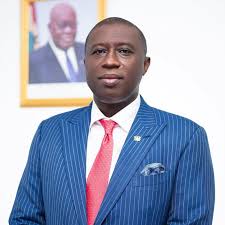Ghana’s Fuel Security at Risk Amid Israel-Iran Conflict – Patrick Boamah

Member of Parliament for Okaikwei Central, Patrick Yaw Boamah, has expressed serious concern about the potential economic fallout for Ghana in the wake of escalating tensions between Israel and Iran. The recent surge in geopolitical instability in the Middle East has already triggered a spike in global crude oil prices, raising alarms for countries like Ghana that rely heavily on fuel imports.
Speaking to journalists in Parliament on Monday, June 16, Mr. Boamah pointed out that crude oil prices have risen by about 7% over the past few weeks due to the ongoing conflict. Ghana, being a net importer of petroleum products, is highly susceptible to global oil market fluctuations. He warned that continued instability in the region could result in a chain reaction that affects pump prices, inflation, and broader economic growth.
“The country is still grappling with significant fiscal deficits and a rising public debt burden,” Mr. Boamah said. “A sustained increase in crude oil prices could worsen the economic challenges we are already facing. It could lead to increased fuel prices at the pump, higher transportation costs, and ultimately a rise in inflation.”
In addition to the economic concerns, Boamah also drew attention to the diplomatic and humanitarian implications of the conflict. He confirmed that Ghana’s Foreign Ministry had issued a directive to temporarily shut down the country’s mission in Tehran due to safety concerns.
“I saw a communication from the Foreign Minister regarding the closure of our embassy in Tehran,” he said. “Reports indicate that the area surrounding the mission has sustained damage from the recent unrest, including water shortages and interruptions in communication. Currently, we have five diplomats and one official on the ground, and the government must act swiftly to evacuate them safely. While this evacuation will come at a cost, it is absolutely necessary to ensure their safety.”
Mr. Boamah emphasized the importance of a proactive response from government officials, particularly in the energy and finance sectors, to safeguard the country’s recent economic progress from being undone by external shocks.
Echoing these concerns, former President John Dramani Mahama also weighed in on the situation during a speech on June 14 as part of his Thank You Tour in the Savannah Region. Mahama commended the efforts made in recent months to stabilize Ghana’s economy but warned that global events beyond the country’s control could still have a significant impact.
“We’ve made good progress in reducing petroleum prices and stabilizing the macroeconomic environment,” Mahama stated. “But we are not immune to international disruptions. The current exchange of missiles and growing hostilities between Israel and Iran have already started to drive up global oil prices.”
He noted that any continued rise in oil prices could potentially reverse the gains Ghana has made in terms of energy affordability and economic stability. To that end, Mahama revealed that he had requested the Ministers of Energy and Finance to closely monitor developments in the Middle East and begin modeling possible outcomes.
“I’ve asked both ministers to assess the impact of rising oil prices on our domestic market and propose mitigation measures. We need to be prepared to respond effectively if the situation worsens,” he said.
As global tensions rise and economic risks mount, both Mr. Boamah and former President Mahama are urging swift and strategic action to shield Ghana from potential fallout. Their warnings highlight the interconnected nature of global events and reinforce the need for a robust, forward-looking policy response to safeguard Ghana’s economic future.






